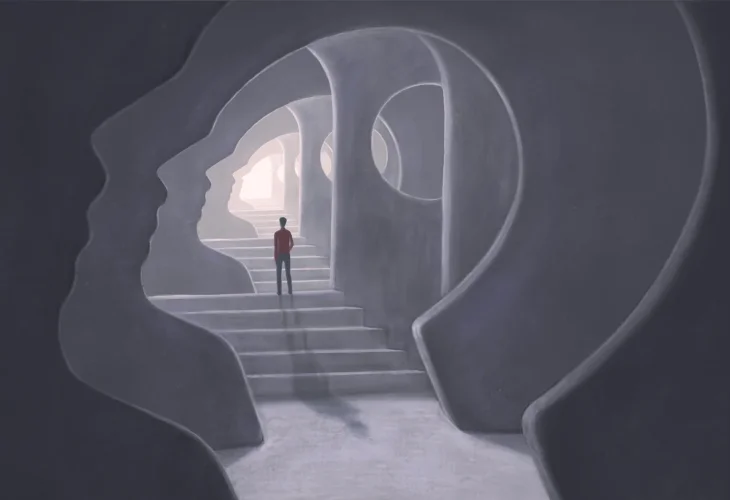When Was the Last Time You Sat Alone With Yourself? This Is What You're Missing
In a world that celebrates constant activity and endless stimuli, moments of silence have become the enemy. The fear of being alone with our thoughts, the avoidance of boredom, and the constant escape to screens separate us from ourselves. How did silence become intolerable and what can we gain if we learn to embrace it?
 (Photo: shutterstock)
(Photo: shutterstock)Waiting for the train, sitting alone in a coffee shop, or even a small moment between tasks – what's the first thing we do? We pull out our phone, check notifications, or look for something "to do." Silence has become an enemy, an empty moment feels like a waste of time, and just the thought of being alone with ourselves feels threatening.
How did we reach a point where every free moment needs to be filled with stimuli, and what happens to us when we stop fearing silence?
What Made Silence Intolerable?
1. A Culture of "Always Busy"
The modern world rewards constant activity:
Those who are busier are seen as "more successful."
Those who have a moment to spare seem like they aren't trying hard enough.
In other words, if you have time to think, you might not be "in the game" enough. This is how we were taught to hate silence, as silence feels like stopping, and the world can't handle stops.
2. The Fear of Meeting Ourselves
When everything is quiet, we are left alone with our thoughts – with our feelings, anxieties, fears. Instead of dealing with them, we fill ourselves with stimuli to suppress them.
Our endless engagement with screens, entertainment, or tasks is a way to escape from ourselves. But when we run from silence, we also miss the opportunity to truly know ourselves.
3. Screens and Distractions – The Easy Escape
Our phone is an available and immediate solution:
A moment of boredom? There's endless content to watch.
A moment of sadness? You can focus on amusing videos and forget it for a while.
The more we rely on external stimuli to avoid silence, the weaker our ability to be alone becomes. Boredom and loneliness – two important forces for mental development and creativity – have become something we must defeat at all costs.
Why Is It Important to Learn to Be Alone?
1. Silence Is Where Deep Thinking Happens
Big ideas, insights about ourselves, and true connection come precisely when we let our thoughts wander. Without interruptions, the mind can connect inward, solve problems, and understand things we couldn't see amidst the noise.
2. Being Alone Is Knowing Who You Are
When silence surrounds us, we learn to listen to our inner voice:
What do we really feel?
What are our desires?
Where do we stand in life?
To know who we are, we sometimes have to be alone with ourselves.
3. Boredom Breeds Creativity
Among all the "empty" moments that seem like a waste of time – moments of inspiration are hiding. When we are not distracted, the mind begins to create. The most creative ideas are born precisely when we are "doing nothing."
How to Learn to Love Silence?
1. Start With Small Moments of Intentional Silence
Try leaving your phone in your bag for 10 minutes.
Sit alone with a cup of coffee with no distractions.
Just look around or let thoughts come to you.
2. Accept Boredom as Part of Life
Try to see boredom not as an enemy – but as an opportunity. When you feel "bored," instead of fleeing to screens – see what your mind offers you to think about.
3. Schedule "Meetings" With Yourself
Dedicate weekly time for yourself – without distractions.
You can go for a walk, sit in a quiet place, or simply stay home alone and listen to what comes up in you.
4. Disconnect the Background Noise
Reduce intentional screen time: an hour a day without a phone or notifications.
Start noticing how many unnecessary stimuli you bring into your life – and cut them back.
In a world that teaches us to escape loneliness and boredom, the ability to be alone with ourselves is strength.
Silence can feel intimidating at first, but if we learn to listen to it, we will discover in it a treasure: an opportunity to know ourselves deeply. A space to think, create, and rest. Because sometimes, the most important moments are precisely those where we do nothing – just breathe, feel, and allow ourselves to simply be.

